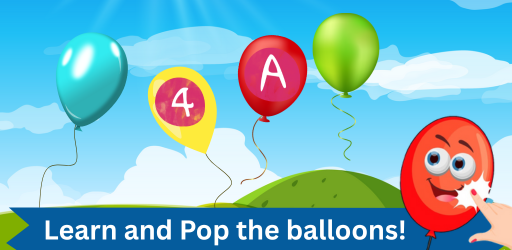How To Keep Primary School Children Learning And Engaged
Any full-time teacher or educator will tell you that maintaining the interest and attention of primary school children is very difficult and requires a multi-faceted approach. It is not enough to simply get children to concentrate but the lesson needs to spark their imagination and critical thinking skills and help them apply concepts they have learned to the real world around them. Using conventional tools therefore such as ready-made slides or a mundane lesson plan may not be the best approach.
An Interactive And Thought-Provoking Store Of Knowledge
Primary teachers need to employ a varied and diverse lesson plan to keep children engaged in their studies. This often means offering a lot of variety such as a visual lesson one day, a verbal one the next, and learning activities at least a few times a week for different subjects. Generally, the younger children are, the more easily they respond to real-time experiments and educational demonstrations of key principles.
Theoretical knowledge is never a strong suit for a primary school student because they simply have not developed the retention and analysis skills used in later stages of school so lessons need to be a healthy combination. Primary school teachers can also do a version of fieldwork, observation, and experimentation for lessons related to basic science for example. Teaming children up in groups for academic activities can not only strengthen their social skills but also allow them to look forward to school and different subjects.
Mindful Breaks
Most relevant research says that the average adult’s attention span (their full concentration and cognitive involvement) is somewhere between 45 minutes to an hour and then their focus rapidly declines. Children are even more precarious than adults and require planned breaks in order to sustain concentration over several lessons in the span of a school day. Make a point of scheduling breaks and encouraging children to either take a nap (as they do in schools in Japan) or do something like a Rubik cube or meditate. Their overall learning will be improved and stress-free.
As a primary school teacher do a warm-up exercise before you start each lesson as that also helps optimal engagement from the students. You can ask them questions such as what they did after they went home the previous day, their hobbies and interests, and so forth. This gets them involved with what is going on in class and they are likely to be more interested in the lesson that follows afterward.

Improve your child's knowledge about English Grammar Pronoun!
English Grammar Pronoun Quiz is an educational app for the kids to learn about the English grammar pronouns by taking the quizzes and the app will test their knowledge.
Enable The Imagination:
When teaching primary school children use both Edtech programs and traditional interactive approaches for maximum effectiveness. Encouraging your school to purchase 3d printers for classrooms can be a big step in giving students printed materials to revise their lessons from and allow them to also make dioramas and other educational projects applying what they have learned. ‘Dead Time’ is a phenomenon when there is less input and interest exhibited by students and preventing that from happening means allowing imaginations to run wild. Teachers should still give clear instructions but let the student interpret each lesson and project in their own way.
Frequently Asked Questions
1. What are some effective strategies for keeping primary school children engaged in learning?
Effective strategies for keeping primary school children engaged in learning include creating hands-on activities, using visuals and games, and providing frequent opportunities for movement and breaks.
2, How can parents and teachers work together to ensure that primary school children stay motivated to learn?
Parents and teachers can work together to ensure that primary school children stay motivated to learn by:
1. Communicating regularly and openly about the child’s progress and needs
2. Encouraging the child’s interests and passions
3. Establishing consistent routines and expectations for learning
4. Providing support and resources for both academic and emotional needs
5. Celebrating successes and achievements
3. What are some fun and interactive activities that can help keep primary school children engaged in learning?
Fun and interactive activities that can help keep primary school children engaged in learning include:
• Educational games and puzzles
• Role-playing and simulations
• Creative arts and crafts projects
• Field trips and outdoor exploration
• Collaborative group projects
4. How can technology be used to enhance primary school children’s learning and keep them engaged?
Technology can be used to enhance primary school children’s learning and keep them engaged through educational apps, online videos, and interactive games and simulations.
5. What are some tips for creating a positive and supportive learning environment that encourages primary school children to stay engaged and motivated?
Tips for creating a positive and supportive learning environment that encourages primary school children to stay engaged and motivated include:
• Creating a welcoming and inclusive classroom culture
• Establishing clear expectations and guidelines for behavior and learning
• Providing opportunities for choice and autonomy in learning
• Building positive relationships with students and families
• Recognizing and celebrating individual strengths and accomplishments.









